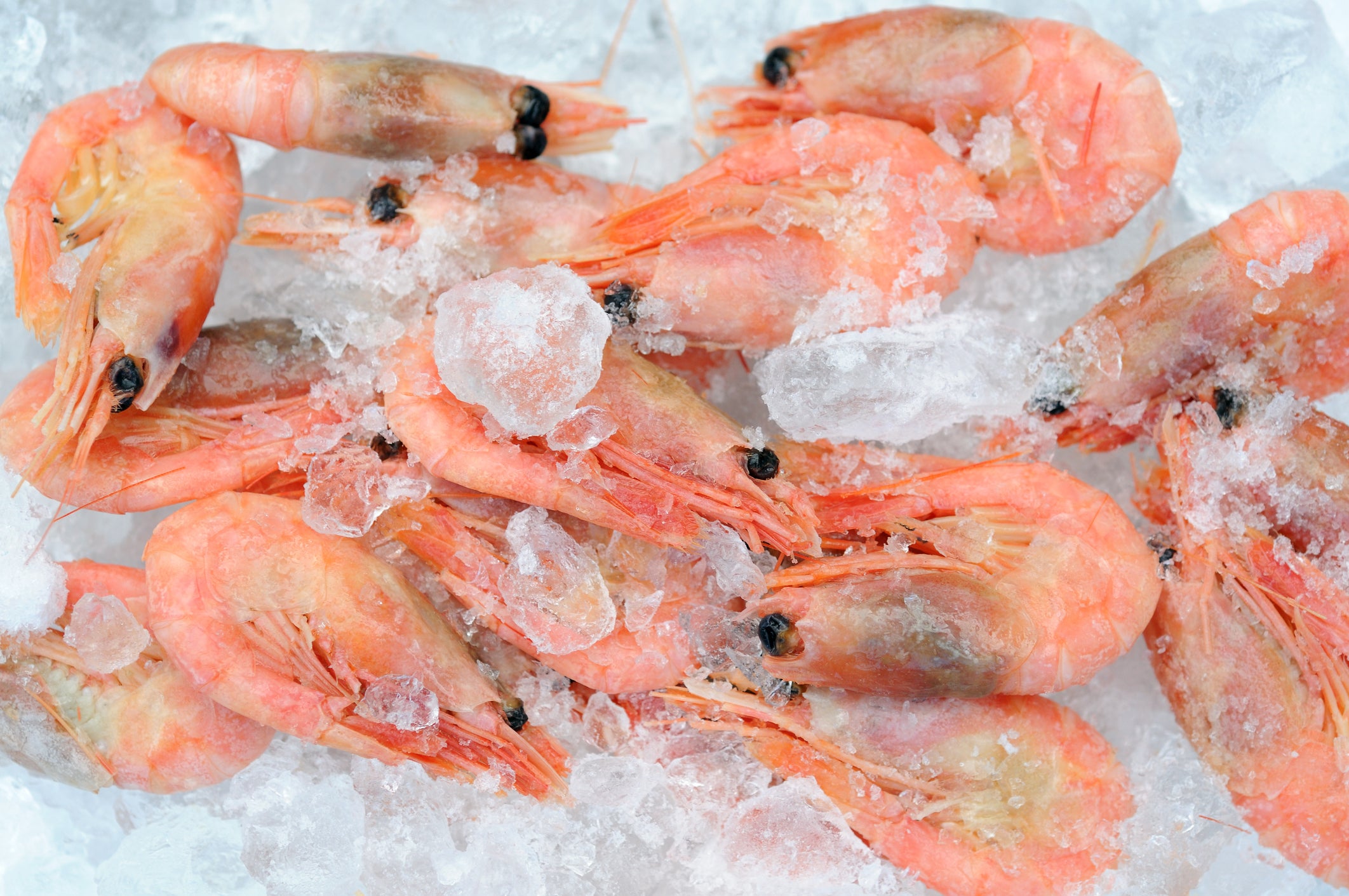I may never understand why the prawns are locked up in my supermarket
Perhaps its something to do with the US ‘food insecurity’ problem or maybe there are some arch-criminals with a penchant for shellfish, but I can’t work out why the prawns are padlocked, writes Holly Baxter


Every Monday, I make a meal plan for the week ahead, which consists of the only five meals I can actually cook (weekends are for takeaways, because I have to have some joy in my life). Every Monday, I fill out the meal plan with a list of ingredients I need from my local grocery store in Brooklyn. Every Monday, I enter the store and go in search of frozen prawns (or, as we say in the good ole US of A, shrimp). And every Monday, I find, to my continued horror, that the freezer containing the shrimp is wrapped twice round with a metal bar and padlocked.
“Why is the shrimp padlocked?” you, a perfectly reasonable bystander, might ask. And the truth is: I have no idea. Nothing else in the frozen fish aisle is padlocked. Beside the shrimp freezer are stacks of frozen cod, haddock, mussels, scampi, pre-prepared fishcakes, all ready for the taking. Indeed, nothing else in the entire store is padlocked. Not the electronics, not the cosmetics, not the large and tempting Oreo cakes, not the mega-sized bags of candy or the razors or the painkillers or the spiralised vegetables. Even more perplexingly, if you want to get a hold of the shrimp, you can – but first you have to describe the exact kind you want to a man behind the fish counter, who will then open up the padlocked freezer for 10 seconds only as you grasp the bag you said you needed and then sheepishly back away like an old man with a foot fetish in an adult bookstore.
Bagging groceries is seen as the domain of teens in need of weekend jobs and grandmothers in need of medical treatment; rarely will you see anyone in between
Try as I might, I cannot work any of this out. Why would people shoplift a bag of frozen shrimp, of all things? It’s uncomfortable and unwieldy to take out of the shop concealed in your pants or your jacket. It’s highly perishable. It’s a low-value item. And most of all, surely it’s difficult to sell: who’s the customer buying shellfish of unknown origin from a sketchy guy in the street? Unless there is some kind of Brooklyn shrimp mafia that has entirely passed me by, the prawn-padlocking system seems entirely nonsensical to me.
That’s not to say that some stores don’t lock up their produce a little more logically. One of my friends who lives on the Upper West Side told me that recently, her local CVS pharmacy had put all face wash and make-up remover under lock and key. She was offended on behalf of her neighbourhood – until a man offered her an expensive brand of exfoliator for $1 on the subway.
In other areas, it gets grimmer: powdered baby milk is put behind alarmed plastic shutters in areas of Bedford-Stuyvesant (“Bed-Stuy”) and lower Manhattan, because of increased incidences of people shoplifting during the pandemic. Indeed, shoplifting during coronavirus has become so common that the tales crop up regularly these days: one Massachusetts cop went viral recently for buying the food a desperate mother had been trying to steal for her family when he was called in by the store.
Food insecurity – the polite term for poor people starving in a wealthy country – is especially rampant in the US, where the minimum wage is still not ubiquitous and healthcare costs for conditions such as diabetes and cancer can cost the average person thousands of dollars. In the grocery stores where baby milk and face wipes are locked up, you often also see ailing elderly people working on checkouts as part of their “retirement plans” to take advantage of the store’s health insurance. Bagging groceries is seen as the domain of teens in need of weekend jobs and grandmothers in need of medical treatment; rarely will you see anyone in between.
What still doesn’t make sense, though, is why my local store has decided the “food insecure” of Brooklyn might have a penchant for shrimp – and why the man behind the fish counter will unlock the freezer so long as he’s interrogated you about how serious you are about buying de-veined, head-on prawns. Perhaps he’s just disproportionately proud of their shellfish. I’m sure that now I’ve said it, I will be proven spectacularly wrong by a Pulitzer Prize-winning investigation in the New Yorker written by Ronan Farrow titled “The Shrimp Mafia and Me: How a Group of Traumatized Veterans Conquered their PTSD by Shoplifting Bags of Shellfish for Cash”. But for now I’m going to have to write it off – along with “chocolate-topped hummus” and the “go home for the Sabbath” van – as one of Kings County’s weirdest quirks.



Join our commenting forum
Join thought-provoking conversations, follow other Independent readers and see their replies
Comments